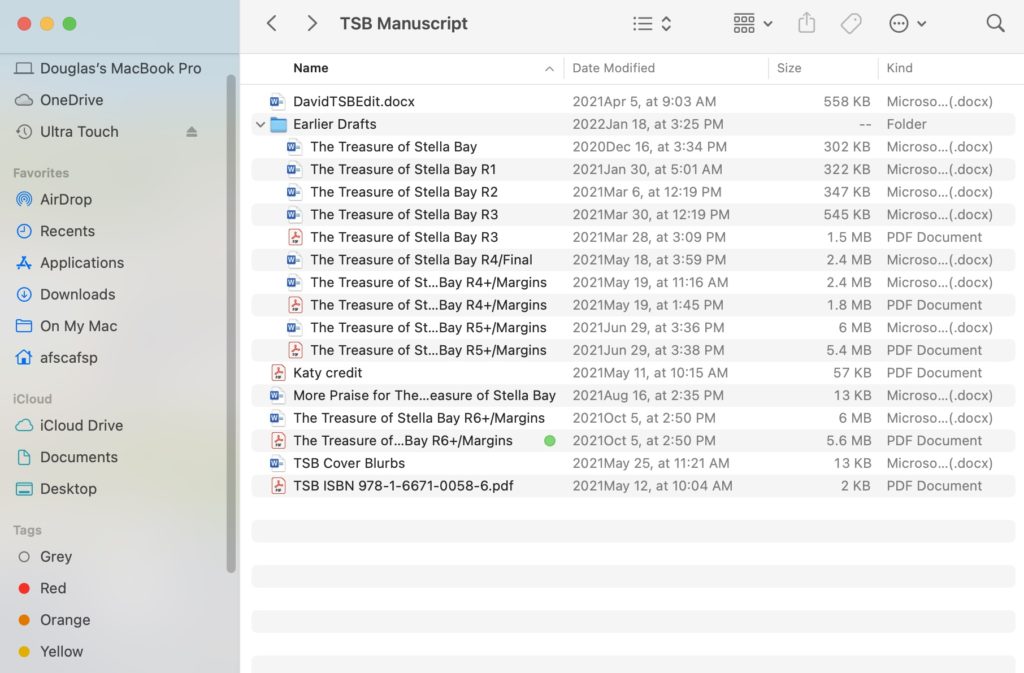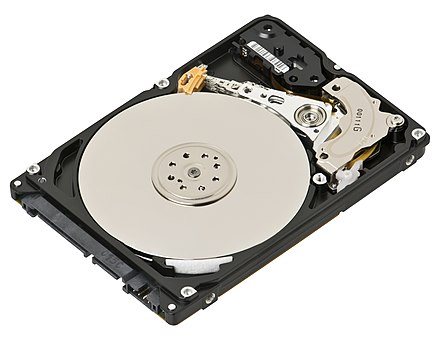First draft done, (R0), now comes the hard work of making revisions, and the idiosyncratic question of whether or not to save the first draft on your hard drive and begin revisions on a new version (R1) of your original draft.
That may sound like a stupid question, or at least one with a simple answer – just keep on revising the original draft – but you’d be surprised how many authors save their first draft and begin revision on a duplicate copy, renaming the file, R1 (or D2 if you prefer that nomenclature). (Of course, if you choose to make continuous revisions to the first draft, you never need to face the question of what to name the file in subsequent revisions.) But why do they do it?
I may as well confess right now, I’m a ‘Save As’ practitioner and make the first round of revisions on a copy of my first draft. It really makes little sense but that’s what I do. I save R0 as R1, then R2 is based on R1, then R3 and R4, which, arbitrarily, but wisely, is the last draft, though, as I recounted in the last post, I know I am lying to myself.

(Did you notice what I just did there? If R0 is my ‘first draft’ then R4 is actually my ‘fifth draft’, and that means I’m not following John McPhee’s (Draft No. 4) advice that professional writers limit their revisions to four drafts; but then, I’m still an amateur author.)
I rationalize this rather redundant behaviour out of some sense of self-defense. And herein lies the rationale if you dare to enter the mind this eccentric author.
The first argument is that it is prudent to retain a backup copy of your manuscript in case your hard-drive should fail in which case you would be able to recover at least your first draft and start over. But that is a specious argument because if your hard drive fails you lose all of your drafts. You MUST save your work to a separate back-up hard-drive, and preferably as you go, and if you do that you still have a copy of the latest draft you were working on. I’m sure we’ve all learned that lesson the hard way and yet errors and losses still happen all too often.

(How many of you remember the film (even though 30 years ago) – ‘Stand By Me’, I think – in which an author (Stephen King?), sitting at his computer and having just put the finishing touches on his manuscript, shoves back from his desk, self-satisfied, and turns off his computer, without having saved his work first. The [enlightened] viewing audience gasps.
The second argument for saving previous versions of your manuscript is that you might have written some very clever lines or paragraphs in an earlier draft but in a subsequent revision decided to delete them, and if on third thought you change your mind and think you can use that clever line after all, you can at least go back and retrieve it, copy and paste it into your current working draft. The problem with this argument, two-fold actually, is that it is often very difficult to remember in which draft those wonderful words lurk; you probe various files on your hard-drive using the search function, but struggle to recall anything specific in the remembered lines that allow you to search for it. I confess to having wasted many minutes (not to say hours) fruitlessly looking for such gems buried, somewhere.
The third argument for saving previous drafts is no argument at all. It is merely the eccentric mind of a hopeless packrat. Like string and screw nuts, you think one day you might need that bit, but you never do. Until you do. You finally decide to clean house and throw out a garageful of useless junk; and the next day, you need something that was in that heap. Same with long-saved files on your hard-drive. You decide one day to spend a few hours (which turn out to be many hours) going through files you haven’t looked at in years. But before you move them to the trash, being prudent, you review each one first to make sure there isn’t something in it that you might need one day; but if you’re like me, this well-intentioned housecleaning exercise deteriorates into an unproductive dive down a deep rabbit hole of self-indulgent nostalgia-mining. And then you throw it out anyway, with regrets, real or imagined.
I have all the drafts of all my books and manuals (eight of which are published and a couple of which should never see the light of day) all saved to my hard-drive, and in turn backed up on my external hard-drive. Despite my rationale that I might one day need to search those old drafts for forgotten gems, the reality is I never have yet, and likely never will.
The truth of the matter is, those drafts remind me of the hours and hours of work and research and rework I put into them; they were an important part of my life. How can I just discard them? And besides, you never know.
I am a packrat.
Now I wrestle with another author dilemma, who and how will these files be saved for posterity?, assuming posterity will give a wit. Besides the innate creative drive – the drive to express themselves through their writing – most authors have a desire (usually unconfessed) that they write in the hopes that they leave something of a legacy for others, some evidence that they lived and thought. More than Descartes famous line, cogito ergo sum, it’s ‘I thought, therefore I was’. But who will take care of your books and memories, and hard drives, after you die?
And for that gripping tale you will have to wait until the next post.
Doug Jordan, reporting to you from Kanata, Canada
© Douglas Jordan & AFS Publishing. All rights reserved. No part of these blogs and newsletters may be reproduced without the express permission of the author and/or the publisher, except upon payment of a small royalty, 5¢.
